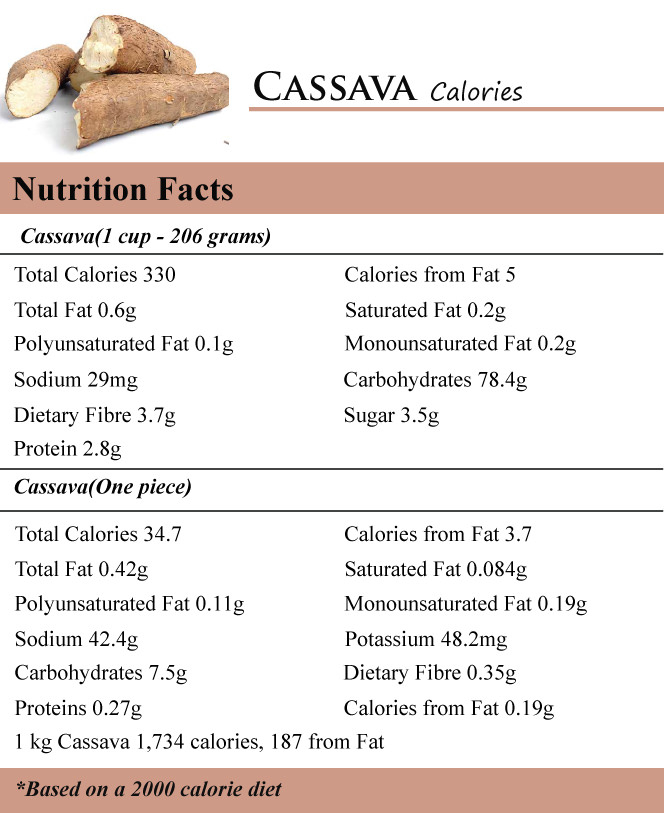Cassava, also known as yuca or manioc, is a starchy root vegetable that is commonly consumed in tropical regions. It is a staple food for millions of people around the world due to its versatility and nutritional benefits. Cassava is rich in carbohydrates and is a good source of vitamins and minerals.
One cup of raw cassava contains approximately 330 calories, 78 grams of carbohydrates, 3 grams of fiber, and 2 grams of protein. It also provides significant amounts of vitamin C, thiamine, riboflavin, and niacin.
Cassava Nutritional Information
Health Benefits of Cassava
Cassava is a healthy addition to a balanced diet due to its nutritional content. The high carbohydrate content in cassava provides a good source of energy, making it a great option for athletes and individuals with active lifestyles. The fiber in cassava helps support digestive health and can aid in weight management.
In addition, cassava is rich in vitamin C, which is essential for immune function and skin health. The B vitamins found in cassava play a crucial role in energy production and nervous system function. Cassava also contains minerals such as iron, magnesium, and potassium, which are important for overall health and well-being.
How to Incorporate Cassava into Your Diet
There are many delicious ways to enjoy cassava as part of your diet. Cassava can be boiled, steamed, fried, or mashed to create a variety of dishes. Cassava flour can be used as a gluten-free alternative in baking recipes, and cassava chips make a tasty snack option.
When preparing cassava, be sure to peel and cook it thoroughly to remove any toxins present in the raw root. By incorporating cassava into your meals, you can enjoy the nutritional benefits of this versatile and delicious root vegetable.
